Are you registered to vote? Planning to cast your ballot? That’s great, but how much do you really know about voting? About the history of this right that so many of us take for granted, or about how our American electoral system really works?
These 10 voting books will help to enlighten and encourage you—and might even change your point of view.
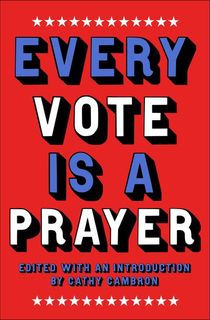
Every Vote Is a Prayer
In a series of quotes, essays, and other writings, editor Cathy Cambron collects a history of the voting rights movement in America through the voices of those who fought for it.
From Abraham Lincoln to Beyoncé, some of the leading voices in America weigh in on one of our most important and fundamental rights—the right to vote. But what does it mean to have the right to vote, and how do we protect and safeguard it for the future? Such illustrious voices as Susan B. Anthony, Martin Luther King, Jr., John Lewis, Franklin D. Roosevelt, and others offer their wisdom.
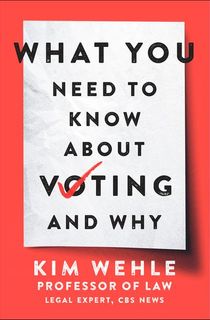
What You Need to Know About Voting—and Why
A tenured Professor of Law, Kim Wehle presents “a clearly written resource for voters across the political spectrum” (Booklist) that walks new, prospective, or just confused voters through every step of the process, while also providing an illuminating look at the history and future of voting in America. The result is a “must-read, especially in an election year” (Norah O’Donnell, anchor and managing editor at CBS Evening News) that also makes a perfect gift this election season.
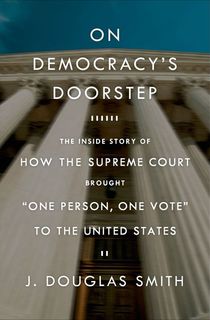
On Democracy's Doorstep
In the 1960s, America was experiencing dramatic social and political upheavals, and the Supreme Court found itself right in the middle – sound familiar? In this Henry Adams Prize-winning book, J. Douglas Smith examines a handful of Supreme Court cases that helped to establish the doctrine of “one person, one vote” and safeguard American democracy.
With voting rights under fire and legislative districts and gerrymandering hot-button issues, even as the Supreme Court once again weighs in on questions of who can and cannot vote and how, this “fascinating blend of political, legal, and social history” (Wichael Waldman, President of the Brennan Center for Justice at NY U School of Law) has never been more timely.
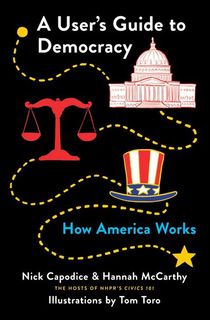
A User's Guide to Democracy
The hosts of NPR’s popular Civics 101 finally decode the complexities of the American political system in this “easily digestible, illustrated guidebook to the agencies and institutions that make up the federal government” (Kirkus Reviews).
What does the Secretary of Defense do all day? What is the difference between Federalism and states’ rights? These and many more questions are answered in “an informative and appealing civics lesson for first-time voters and old hands alike” (Publishers Weekly).
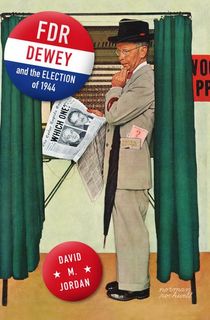
FDR, Dewey, and the Election of 1944
“In a clearly written, well-researched narrative,” author David M. Jordan “tells the story of the 1944 presidential election, and he tells it very well” (Journal of American History).
In the shadow of World War II, the election of 1944 placed Franklin Delano Roosevelt in the White House for an unprecedented fourth term, but while Roosevelt ultimately won in a landslide, the outcome of the election was never a foregone conclusion, as Jordan illuminates in this “detailed account of the ‘infighting and horse-trading’ of this hard-fought, wartime campaign” (Survival).
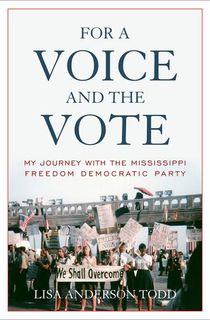
For a Voice and the Vote
In the summer of 1964, Lisa Anderson Todd was among the hundreds of American college students who flocked to Mississippi to help the state’s Black residents register to vote and get to the polls, despite intimidation and disenfranchisement.
In this “heartfelt, insightful examination of the challenges, complexities, triumphs, and defeats involved in the arduous struggle to transform conditions in Mississippi, the Democratic Party, and the United States” (Timothy N. Thurber, author of Republicans and Race), she tells her gripping personal story, alongside the history of this pivotal moment in American politics.
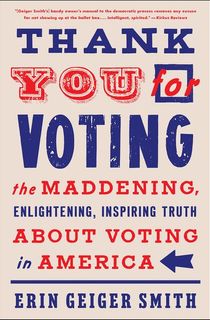
Thank You for Voting
Countless Americans have struggled, fought, and even died for the right to vote—so why don’t more of us exercise that right every election? Erin Geiger Smith believes that it’s because of a fundamental lack of understanding about how the system works —a lack that she sets out to correct in this “illuminating and accessible” (Publishers Weekly) book that “serves as both a history of voting rights in the United States and an instructional tool for voters” (Library Journal).
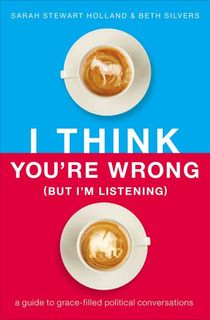
I Think You're Wrong (But I'm Listening)
“We can be united without being unanimous” argues this “guide to grace-filled political conversations” from two working moms from different sides of the political spectrum who are also the co-hosts of the award-winning Pantsuit Politics podcast.
In a world where politics seem to be driven almost entirely by discord and coexistence (let alone compromise) seems practically impossible, I Think You’re Wrong (But I’m Listening) offers a roadmap to bringing respect and perspective back to political discourse, teaching us “how to dialogue well, without sacrificing our humanity” (Jen Hatmaker, New York Times bestselling author and speaker).
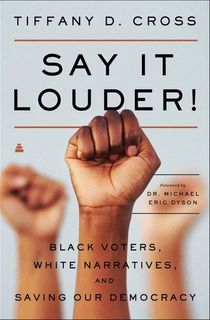
Say It Louder!
In this “compelling exploration of how black voters have the power to shape the country’s future” (Kirkus Reviews), Tiffany Cross “writes with an eloquent rage and makes a convincing case that ‘empowering and employing’ people of color in the media is essential to preserving democracy” (Publishers Weekly).
Looking at the history of the Black vote in America, Cross argues that it has shaped democracy and, indeed, enabled it in this lucid and thought-provoking study. “Cross’s straight talk might be hard for some news editors and pundits to hear, but she makes it clear that it’s in the country’s best interest for them to listen” (New York Times Book Review).
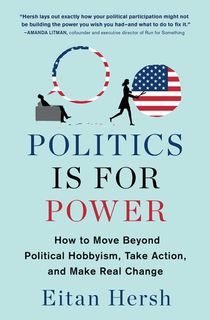
Politics Is for Power
Unfortunately, even the most politically engaged amongst us often treat politics more as a spectator sport than something in which we’re actively involved—and frequently, that’s because we don’t know how to exert our own political power.
That’s something political scientist and data analyst Eitan Hersh sets out to change in this book that will “leave you inspired, and even hopeful, about America’s democratic future” (Daniel Ziblatt, coauthor of How Democracies Die) and give you the tools you need to begin turning your political hobbyism into real political change.
